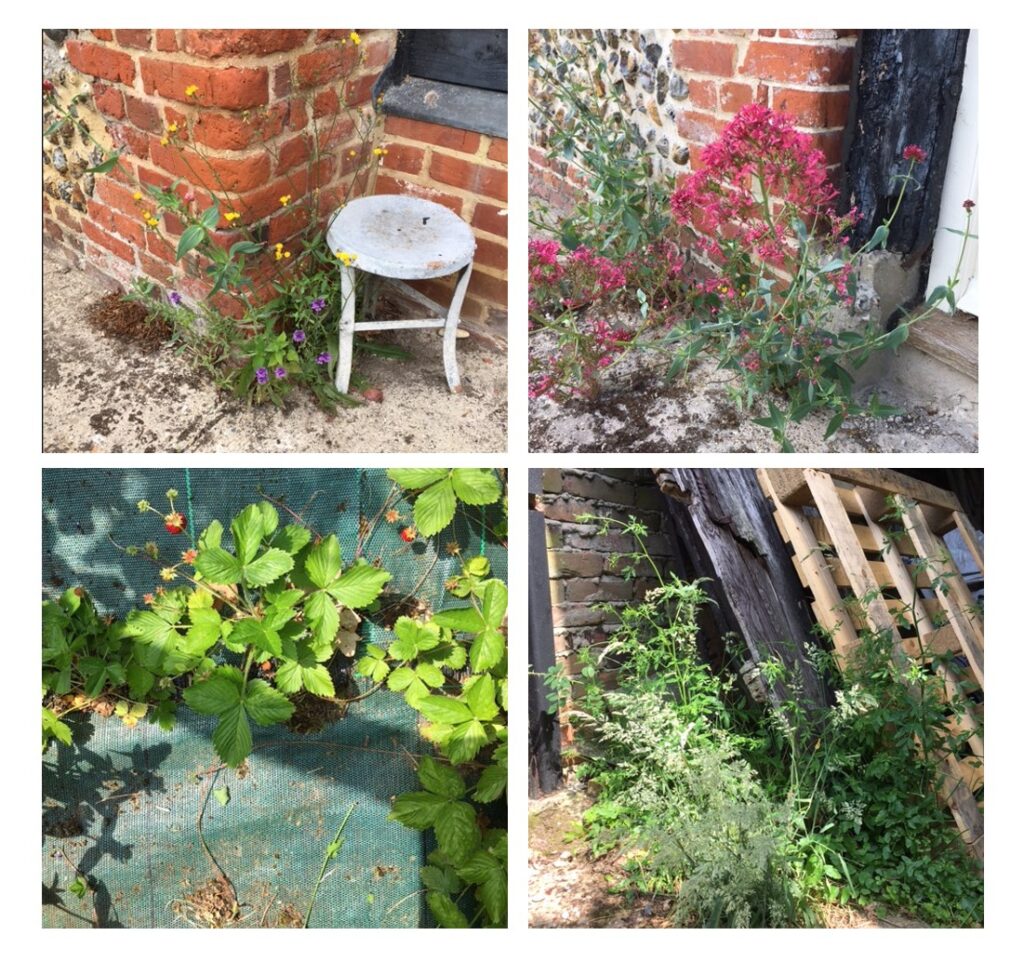What is meant by frames of reference?

These photos were taken around my garden and the plants are technically weeds. The dictionary defines a weed as ‘a wild plant growing where it is not wanted’. These self-seeded wild flowers taking advantage of cracks and crevices – and the ones crowding out the cultivated plants in my flower beds – they all fit this description: they are plants in the wrong place.
But I find them quite beautiful.
A person who prides themselves on their gardening skills or wants to have a prize-worthy lawn or vegetable patch would immediately dig them up, maybe adding some weed killer to be doubly sure they won’t return next year. But preferring a more ad hoc natural style, I’m intrigued by what will pop up next and enjoy their variety.
In psychology a ‘frame of reference’ is a set of beliefs or values on which you base your judgements. If I saw these plants as weeds my reaction would be very different. Our frame of reference influences how we react to life events, ideas, experiences and even other people. The way we perceive an event can be very different to someone else, even though we may objectively have had the same experience. This is because we are filtering the experience through our own preconceptions and interpretations.
By changing your frame of reference you can change your reactions and emotional response.
Imagine that you are driving and someone overtakes you at speed on a narrow stretch of road. You may interpret this as reckless driving, possibly making assumptions about the unknown driver – ‘boy racer’, ‘road hog’. The more you think about it the more you become wrapped up in righteous anger, hoping the driver gets caught by the police. Now let’s imagine that you recognise the car as it disappears off into the distance. It’s your neighbour’s vehicle and you know she is soon to give birth, the baby due any day. Her eldest daughter could have borrowed the car… but maybe it’s an emergency and they are driving to the hospital? Immediately your reaction changes – you hope all is well and they make it safely.
A change of thought and assumption changes the emotional reaction.
One way to change your experience of the world is to change your point of view. This is not always easy, but a good place to start is to notice what you are assuming and think of possible alternative interpretations. And if you cannot envisage a different way of seeing things, you could try:
- imagining how someone else would perceive the situation, maybe a friend with a different attitude or someone you admire;
- imagining yourself looking back on things when you are older and events are in the past;
- considering the best, worst and middle interpretation of events.
As always, if you need help with challenging issues please seek the help of a psychotherapist or counsellor. BACP or UKCP have list of registered and experienced therapists.
P.S. The ducklings I was raising have been released and are now living happily on the pond. Photos and videos are on Twitter – @julestake3
